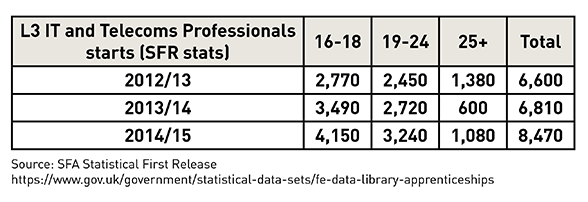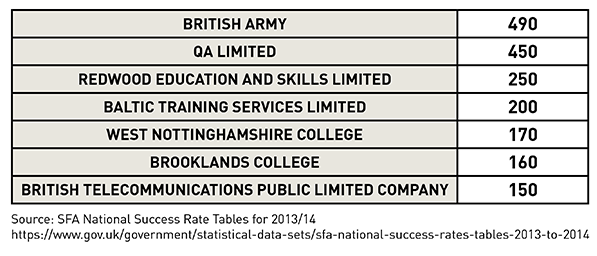The Prime Minister has spoken this month about plans to give governors more freedom over prisoner education budgets, as part of a keynote speech on wider prison reform. Alexandra Marks looks at how this could affect the FE sector.
It’s great to see the Government supporting prison education from the very top, as it has been a neglected aspect of FE for too long.
But what are the opportunities and risks for the FE sector through the reform plans identified by David Cameron in his speech (made on 8 February)? If we were marking the Prime Minister’s work, what would he get?
The Prisoner Learning Alliance (PLA), a coalition of 23 expert organisations, has called for the end to meaningless “output” measures.
This reflects wider FE thinking, following the Wolf Report, that mechanisms focused on drawing down funds for individual accredited qualifications can result in perverse outcomes.
If satellite
tracking is increased, as suggested by the Prime Minister, more prisoners could spend their weekdays learning in the community and come back to prison at the weekend
We, therefore, welcome the announcement by the Prime Minister to develop meaningful outcome-based metrics such as re-offending levels, employment outcomes after release and educational progression during a sentence.
The PLA has been critical of the fact that governors’ lack control over education in their prisons and that the current education contract lacks sufficient flexibility to enable providers to deliver what they would ideally like.
We have also highlighted the difficulties caused by the lack of officers to unlock and escort prisoners to classrooms and workshops, not to mention the other limitations a severely overcrowded system imposes on the creation of a learning culture across the whole prison.
That is why we called for greater autonomy for governors and are pleased the Prime Minister intends to do this backed by a promise to protect prison education budgets in cash terms of £130m per year.
Of particular interest was the announcement of a pilot of six “reform prisons” giving governors total discretion over the budget, the ability to opt-out of national contracts and to choose their own suppliers.
But what does this mean for the current providers and the wider FE sector?
Although the details of Dame Sally Coates’s review have not yet been published, it would appear from Cameron’s speech that the Government may be moving towards a more fragmented and diverse market place for prison education provision.
This would create opportunities for a wider range of local FE colleges, voluntary sector organisations, private companies, academy chains, universities and other experts.
If satellite tracking is increased, as suggested by the Prime Minister, more prisoners could spend their weekdays learning in the community and come back to prison at the weekend.
This would also allow them to access apprenticeships which are not available in prisons.
The risk for the current education providers is that rather than bidding for large regional contract areas, they may need to make their case to individual governors, or smaller clusters of governors, with increased competition.
The PLA’s members know that engaging prisoners in learning so they can transform their lives takes skill, enthusiasm and creativity.
The PLA have called for a focus on excellence in prison teaching, so is delighted to hear the Prime Minister will develop a new social enterprise, led by David Laws, to recruit high quality graduates to teach in prisons, similar to the Teach first initiative in schools.
However we continue to call for more professional development opportunities for current teaching staff and officers, support to recruit and retain experienced teachers and vocational instructors, and greater access to resources, including technology, that you would find in mainstream FE provision.
The Prime Minister cannot cover everything in a speech of a few hundred words, but it marks a significant step in re-framing the purpose of our prisons, putting rehabilitation and learning at the heart.
It offers both risks and opportunities for the FE sector and we wait to hear more details from Dame Sally Coates in due course.
Muddled implementation against the background of limited resources and prisons under pressure could undermine the Prime Minister’s ambitions.
But as a statement of purpose and direction, the Prime Minister’s speech is heading to the top of the class.
Alexandra Marks is chair of the Prisoner Learning Alliance






